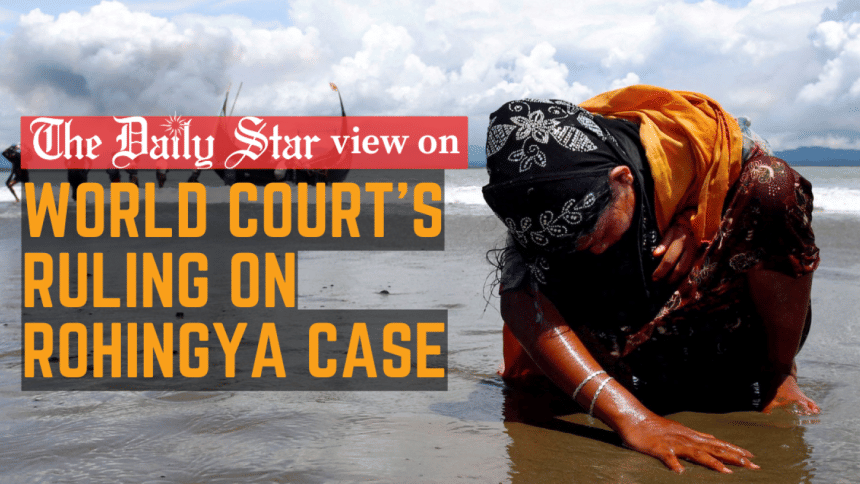ICJ ruling raises hope for Rohingya justice

We welcome the ruling of the International Court of Justice (ICJ) on the legality of the trial of the Rohingya genocide case. This gives us hope that the Myanmar military will not be let off the legal hook easily, even as it continues to dillydally in the repatriation bid with Bangladesh. The court's ruling paves the way for the case to be heard in full, which we hope will lead to justice sooner than later. The trial and finding a long-lasting solution to the Rohingya crisis are both key priorities, and both should be given due importance.
It's been several years since the Myanmar military committed what has been termed "ethnic cleansing" with genocidal intent, the kind of which the world hasn't witnessed in recent decades. Although the junta has been rejecting the "genocide" aspect of the crisis, the World Court on Friday invalidated its objections. The central argument of Myanmar was that Gambia, which brought the suit, had no standing to do so at the top UN court. But the president of ICJ, Judge Joan Donoghue, made it clear that Gambia, as a state party to the 1948 Genocide Convention, can act to prevent genocide, and that the court has jurisdiction in this case.
The Rohingyas have had to go through a series of calamitous episodes since they were brutally murdered, raped and ousted from their ancestral homes in Myanmar. The trauma still haunts them as they wait in squalid camps in Bangladesh to go home and begin a new life. But safety, dignity and integration are of essence while their fate is being decided, and care should be taken so that they do not fall from the frying pan into the fire. No doubt the question of international justice and accountability will be crucial in finding a durable solution to the crisis. We believe all parties involved should maintain their focus on the question of confidence-building among Rohingyas, first by ensuring swift justice in the ICJ case, and then by ensuring that their return home is accompanied with their rights as citizens restored.
In this regard, we would like to reiterate the importance of starting the repatriation process which has been dragging on for a couple of years. As well as getting justice for what happened to them in the past, the Rohingyas are equally concerned, and rightly so, about what will happen to them in the future. World leaders cannot champion the cause of justice on one front, and abandon its pursuit on another front.

 For all latest news, follow The Daily Star's Google News channel.
For all latest news, follow The Daily Star's Google News channel. 





Comments